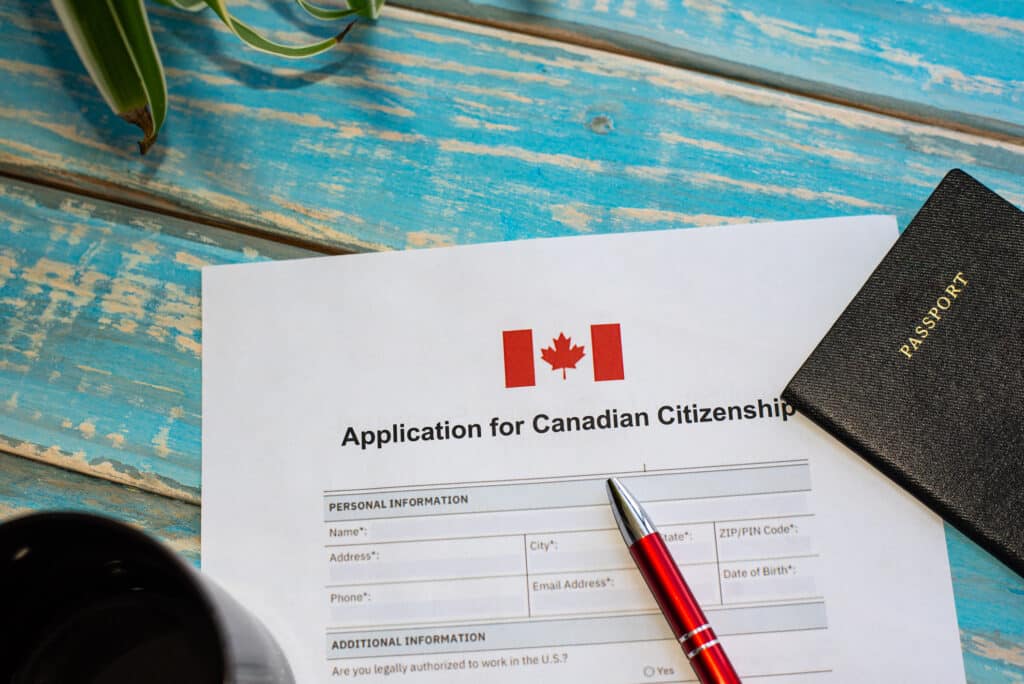Did you know GYH can help with your outbound immigration needs? We have a vast network of local counsel around the globe and offer consultations and representation for both global and U.S. immigration matters. Stay tuned for a series of guest blogs from our international local counsel network about immigration options in their home countries.
Summary of Canadian Citizenship Options

By Guest Contributors: Jacqueline Bart and Genevieve Giesbrecht
Canadian citizenship can be acquired either through birth, naturalization, or descent. Almost anyone born in Canada is automatically entitled to Canadian citizenship. Citizenship by naturalization occurs when a permanent resident of Canada has spent a sufficient amount of time in Canada, meets the requirements, writes a test, and takes an Oath. Citizenship through descent means obtaining citizenship because one or both of your parents were Canadian citizens at the time of your birth.
Eligibility:
Canadian citizenship by descent is currently subject to a first-generation limit. This means that a Canadian citizen (either by birth or naturalization) can pass their citizenship to their children. However, those children cannot pass Canadian citizenship to future generations.
Prior to 1977, Canada did not recognize dual citizenship. As a result, if a Canadian acquired citizenship in another country, they lost their Canadian citizenship. Later amendments to the Citizenship Act allowed for multiple citizenships and retroactively restored citizenship to those who had previously lost it.
Therefore, if someone was born in Canada but lost their Canadian citizenship before 1977 due to acquiring another citizenship, their children are still eligible for citizenship by descent.
Adopted children are also eligible for citizenship by descent but may need to provide additional supporting documentation.
Process:
Children born to Canadian citizens (whether born in Canada or naturalized) are considered Canadian citizens. However, they need a Citizenship Certificate to access the benefits of Canadian citizenship.
To apply for a Citizenship Certificate, the individual must demonstrate their relationship to their Canadian citizen parent (i.e. a birth certificate) and proof of their Canadian citizen parent’s citizenship. The individual must also complete the required application and provide the required documentation to be assessed by a Citizenship Processing Office.
Individuals residing outside of Canada, or the USA are assessed by the Canadian Embassy or Consulate responsible for their country.
Changes to the Law:
In December 2023, a Canadian court found that the first-generation limit on citizenship by descent was unconstitutional. As such, the Government of Canada is currently drafting new legislation that would allow citizenship by descent to be conferred to second and subsequent generations.
The proposed law will likely require that the first-generation Canadian resided in Canada for at least three years before the birth of the second-generation citizen. These three years do not need to be consecutive but aim to show substantial ties to Canada.
The Government of Canada is expected to pass this new legislation in late summer or early fall of 2024, potentially allowing many more individuals to benefit from Canadian citizenship by descent.
Jacqueline Bart is the managing partner and Genevieve Giesbrecht is an associate lawyer at BARTLAW LLP | Barristers and Solicitors, a leading Canadian immigration law firm. They can be reached at info@bartlaw.ca.
Note: This information is for informational purposes only and does not constitute legal advice or establish an attorney-client relationship.

